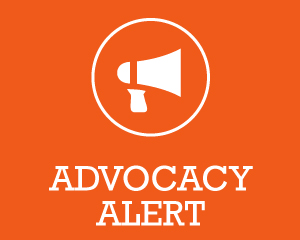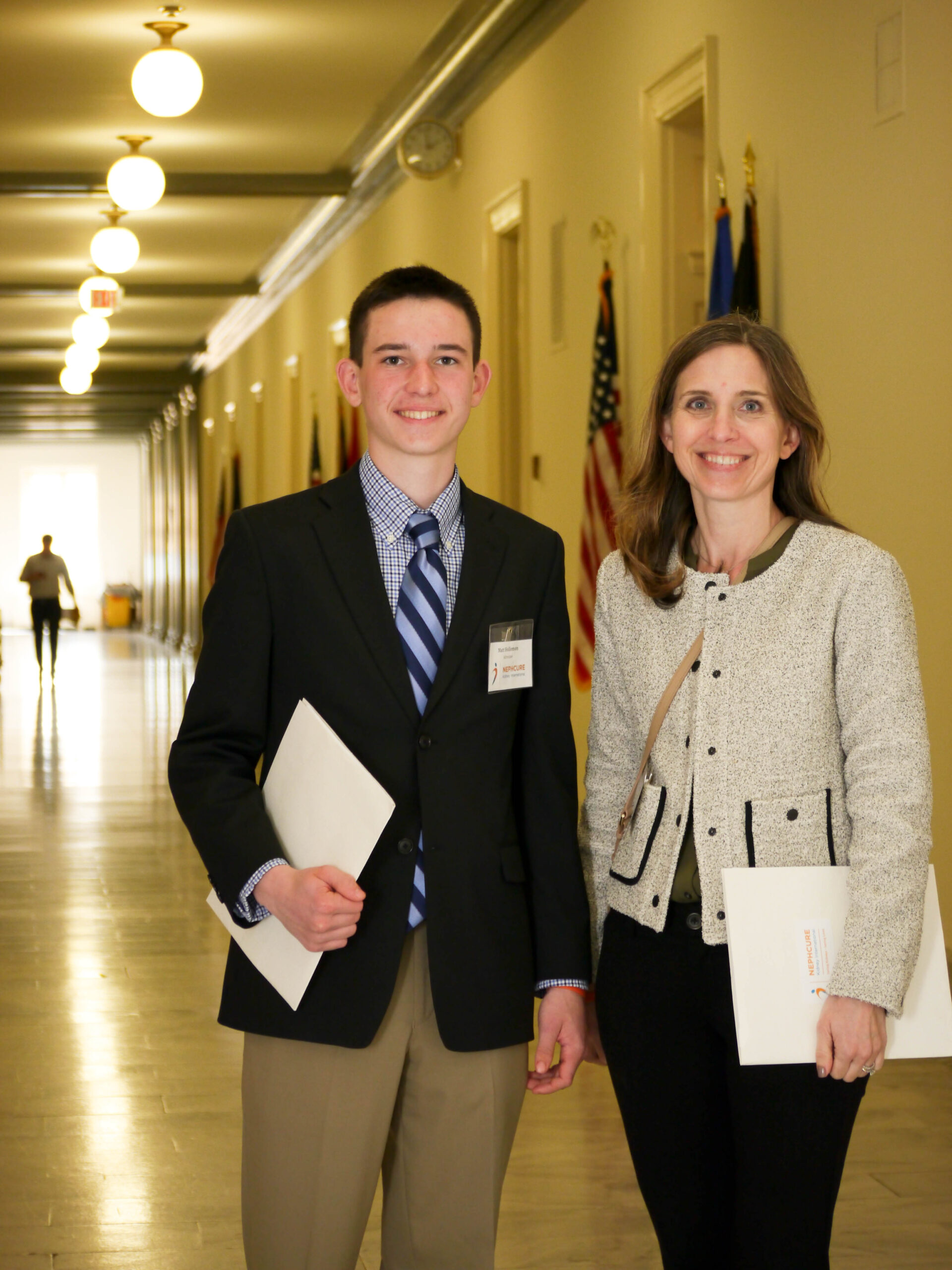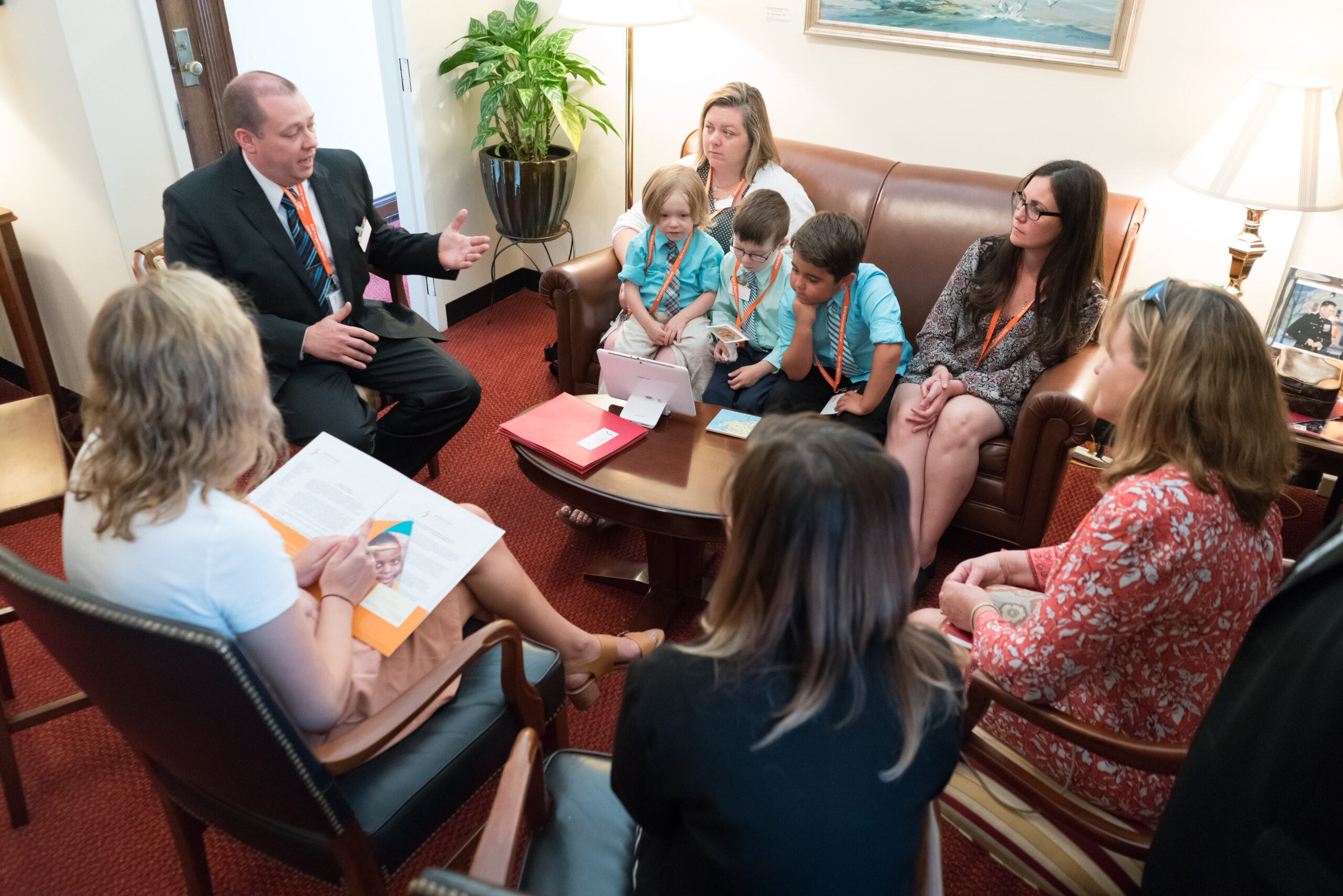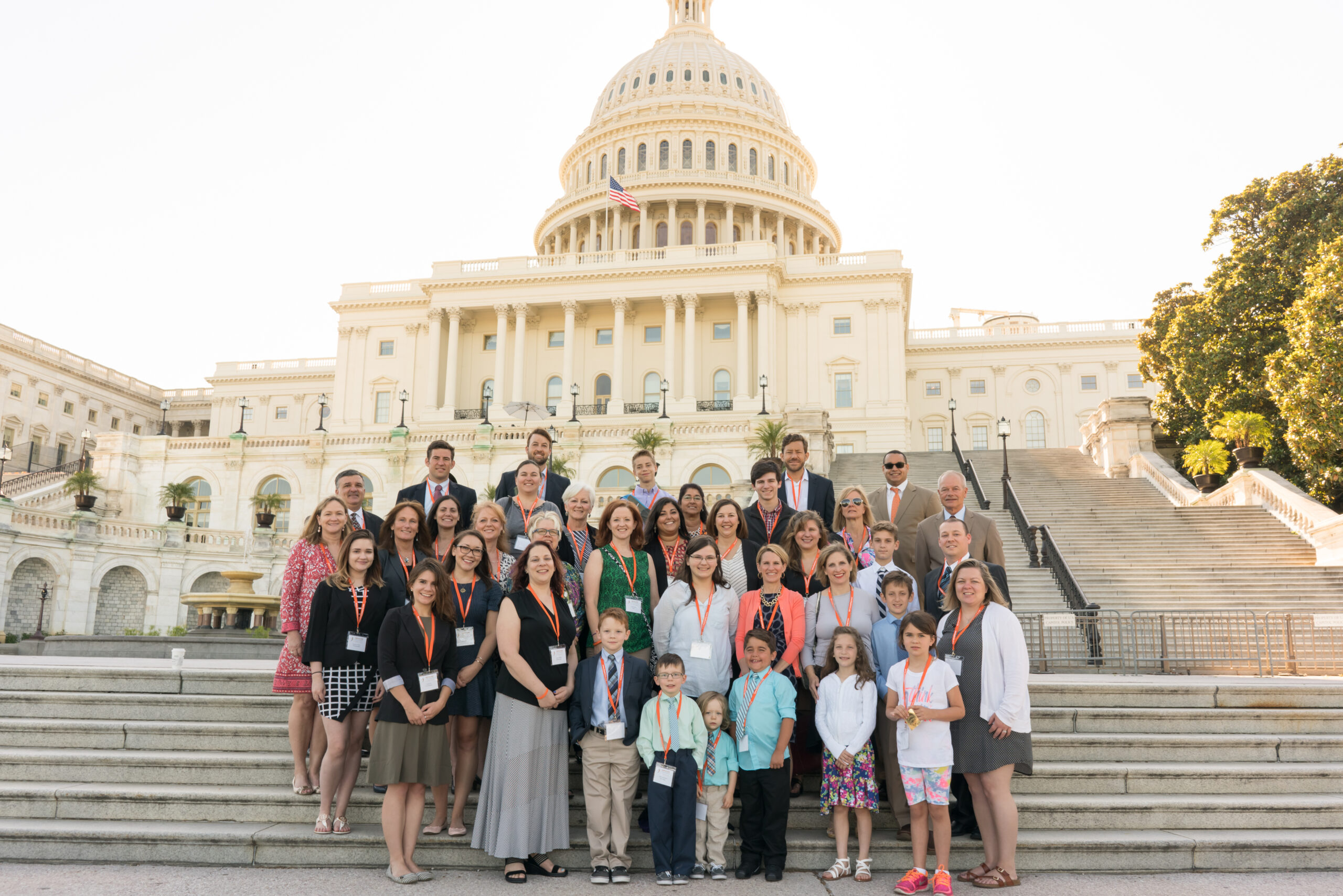Advocacy Alert! Action Required: Tell Congress to Preserve Protections for Chronic Disease Patients
Contact your House Member to ask them to support critical patient protections during the current healthcare reform effort
Tell Congress to Preserve Protections for Chronic Disease Patients
 The leadership of the House of Representatives is continuing to work with conservative and moderate Republicans in an effort to repeal and replace the Affordable Care Act (ACA). Their proposal, the American Health Care Act (AHCA), was pulled from consideration a few weeks ago when it could not muster the votes to pass. However, House leaders continue to try and find common ground in order to modify the House leadership bill to make it passable.
The leadership of the House of Representatives is continuing to work with conservative and moderate Republicans in an effort to repeal and replace the Affordable Care Act (ACA). Their proposal, the American Health Care Act (AHCA), was pulled from consideration a few weeks ago when it could not muster the votes to pass. However, House leaders continue to try and find common ground in order to modify the House leadership bill to make it passable.
The emerging House leadership plan includes a number of provisions that would be devastating for patients with chronic, complex, and costly medical conditions. The bill would remove protections for individuals with pre-existing health conditions. It would also eliminate the ACA’s Essential Health Benefits—federal quality standards for health insurance policies.
In place of these protections, the bill would expand health savings accounts and tax credits, establish state risk sharing subsidies, and leave it to states to determine which essential health benefits they will offer—likely leading to lower quality benefits for patients with costly diseases.
For patients with costly health conditions, they could likely never put enough money in a health savings account, nor would they be able to take advantage of a tax break associated with not utilizing healthcare services. Further, segregating costly patients into high risk pools has not worked in the past and would jeopardize access for the most vulnerable.
 Elimination of the federal mandate that insurers offer a minimum level of benefits and allow states the flexibility to decide these benefits would likely mean that many states would have the incentive to not recommend comprehensive benefits to those with pre-existing health conditions. Insurers could also dramatically hike premiums for those with expensive chronic health care needs.
Elimination of the federal mandate that insurers offer a minimum level of benefits and allow states the flexibility to decide these benefits would likely mean that many states would have the incentive to not recommend comprehensive benefits to those with pre-existing health conditions. Insurers could also dramatically hike premiums for those with expensive chronic health care needs.
The House of Representatives could vote on this bill when it returns on April 24th from the Easter recess. Grassroots outreach and educating Members of Congress about the needs of chronic disease patients continues to influence the overall debate. At this time, please reach out to your House member and ask them to protect patients and oppose discriminatory and dangerous provisions.
Take Action
- Secure the contact information for your House representative by visiting House.gov and using the “Find Your Senator/Representative” query tool in the upper right corner.
- Call the office and ask for the Health Legislative Assistant. You can either leave a voicemail or request their e-mail address and send them a message using the template below.
- Politely and occasionally follow up on your request. You should have an expectation that the office will respond to your specific concerns.
- If you would like to do more, you can request a brief meeting with the staff at your members’ local offices (the location information is on their websites).
+++++++++++++++++
Dear _______,
My name is _________ and I am a constituent from _________. I am also an advocate for the community of individuals impacted by _________ (condition). I write to urge you to maintain stability for chronic disease patients as you and your colleagues consider healthcare reform and changes to the American Health Care Act (AHCA). The AHCA in its current form would be devastating for my community.
Segregating high cost patients into high risk programs has not worked in the past, even with a federal subsidy. Additionally, eliminating the federal mandate that insurers offer a minimum level of benefits would likely mean that many states could offer substandard benefits for those with pre-existing health conditions or hike premiums for the most vulnerable Americans in desperate need of essential healthcare.
Please make sure any proposal maintains crucial patient protections that promote access and prevent financial hardships. Specifically, please ensure any future proposal:
- maintains essential health benefits
- prohibits pre-existing condition discrimination
- prohibits lifetime and annual caps on benefits
- allows young adults to stay on family coverage until they are 26
- limits out-of-pocket costs for patients in a meaningful way
[Add a paragraph of brief information about the medical condition you are concerned about. Tell your story.]
Thank you for your time and your consideration of this letter. Please tell me how you have responded to my request.
Sincerely,
[Name]
[Address]

 More Good News:
More Good News: 





 The leadership of the House of Representatives is continuing to work with conservative and moderate Republicans in an effort to repeal and replace the Affordable Care Act (ACA). Their proposal, the American Health Care Act (AHCA), was pulled from consideration a few weeks ago when it could not muster the votes to pass. However, House leaders continue to try and find common ground in order to modify the House leadership bill to make it passable.
The leadership of the House of Representatives is continuing to work with conservative and moderate Republicans in an effort to repeal and replace the Affordable Care Act (ACA). Their proposal, the American Health Care Act (AHCA), was pulled from consideration a few weeks ago when it could not muster the votes to pass. However, House leaders continue to try and find common ground in order to modify the House leadership bill to make it passable. Elimination of the federal mandate that insurers offer a minimum level of benefits and allow states the flexibility to decide these benefits would likely mean that many states would have the incentive to not recommend comprehensive benefits to those with pre-existing health conditions. Insurers could also dramatically hike premiums for those with expensive chronic health care needs.
Elimination of the federal mandate that insurers offer a minimum level of benefits and allow states the flexibility to decide these benefits would likely mean that many states would have the incentive to not recommend comprehensive benefits to those with pre-existing health conditions. Insurers could also dramatically hike premiums for those with expensive chronic health care needs.